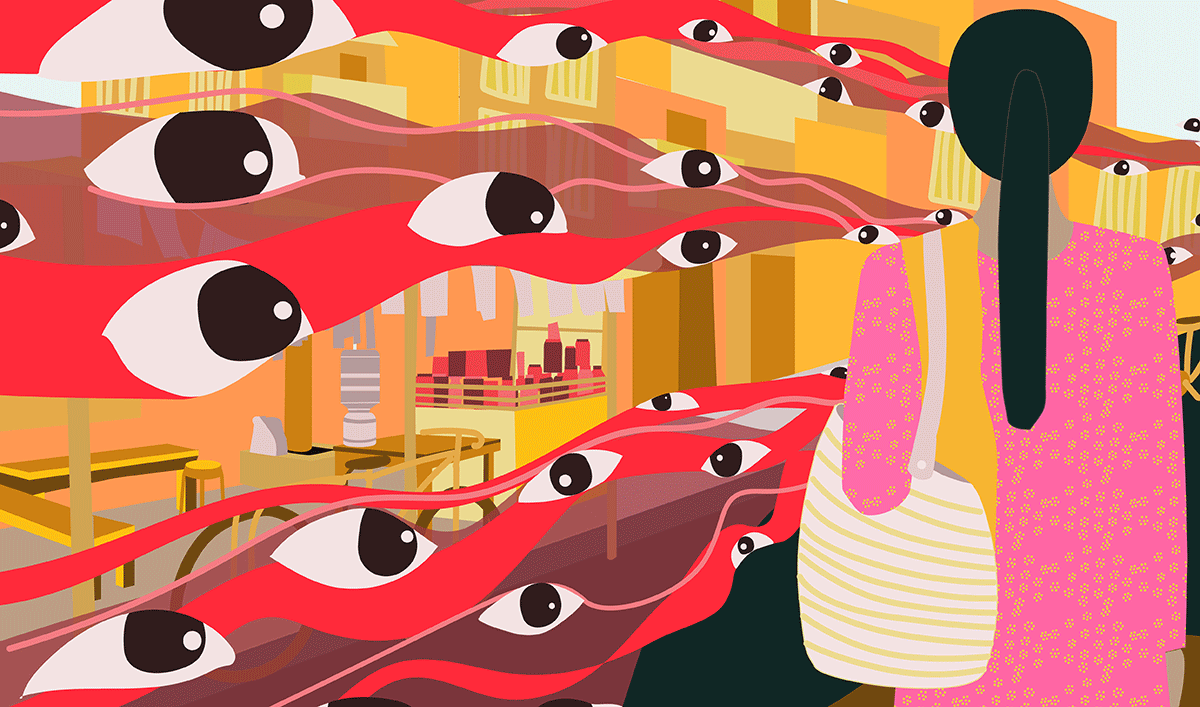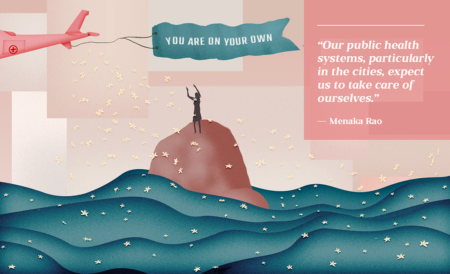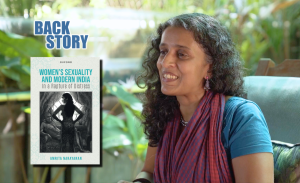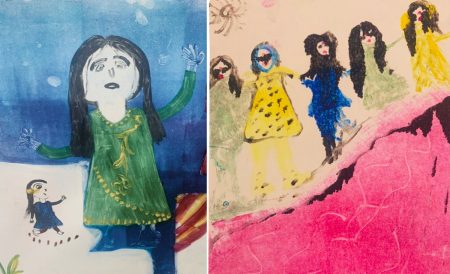The Third Eye worked with 12 caseworkers in rural and small town Uttar Pradesh, and through a process that included immersive writing, theatre-based pedagogies and year long workshops, the caseworkers became the lexicographers of The Caseworkers’ Dictionary of Violence.
I was 16 years old. At the time, I had taken up a job in order to take care of my mother and younger sister. In doing so, I had to face many difficulties at the hands of my family, relatives, and the people in my mohalla. I would step out of my house every day and go to work as a Supervisor at Hindustan Lever Limited (HLL). But, deep within, I possessed neither strength, nor courage or self-confidence.
As a supervisor, I was required to collect information about products used in households. Everyday, I would go from one house to another in different mohallas and talk to people in order to gather information. This was when I faced discrimination based on my identity for the first time.
At the same time, people in my community would wonder, what kind of work requires a woman to wander the streets everyday?
My job as a supervisor gave me 15,000 to 20,000 rupees. I used this money for major expenses like my sister’s education, my mother’s medicines, rations and fuel for running the household. Events like weddings in the family called for expensive gifts to be presented by my mother, which I would arrange for. My brothers did not help out at all with this. Instead, they would tell my mother, “Your dear daughter earns, take money from her. Why should we pay?”
Going out of the house for work meant that I had my own expenses to take care of as well. Whatever was left over from my salary, I would spend on buying presentable clothing and mobile recharges.
The people in my mohalla could not digest my lifestyle. They would often taunt my mother: you make your daughter work to pay for your needs. They would say, “A daughter’s earnings are haraam; you send your daughter out into the world so that you can live a comfortable life. For this, she is roaming around freely from one street to the next.” Young men hanging about at the nukkad and tea stalls too, would taunt my brother, “Your sister goes out of the house. God knows what she does and who she meets.” One of these men said, “I have heard that your sister goes to hotels. It seems like she is involved in some kind of dhandha or prostitution.” My brother would return home, filled with fury. At that moment, he would only be on the look-out for me, crazed with thoughts of how he would kill Rukhsana (name changed for anonymity) once he got a hold of her.
My heart was constantly weighed down with pain after being subjected to these taunts day in, day out. Despite my sinking heart and spirit, I would step out again the next morning to face the same jeering men at the nukkad. Sometimes, one of them would shout out, “Look, there goes the dhandhe-waali, the prostitute, to her hotels.”
Gradually, these taunts began to have an effect on me. My heart was no longer in my work. I felt broken at every moment. In the middle of all this, I was betrayed by the person I loved. He abandoned me and got married to a rich girl. This left me completely disillusioned. But I was forced to work in order to feed my family. The anxiety about my mother’s health and my sister’s education constantly plagued me.
I have made a lot of unwanted samjhautas on this journey to where I am today – sometimes in the name of poverty and destitution, sometimes in the search for new paths, or sometimes in the name of relationships. Samjhauta surrounds my life, and has become an indispensable part of my existence.
But sometimes, samjhauta also works as a milestone. It has carried me from one juncture to the next. I have experienced some of these junctures as guiding lights, and sometimes these are points where I have confronted my own sense of brokenness and discomfort.
But the moment of samjhauta is never easy, for one has to make compromises while steeling your heart. At the same time, it is true that some samjhautas have brought about big changes in my life.
As a caseworker, I have witnessed how women living with gender-based violence are compelled by their circumstances while making samjhautas. Sometimes, these compulsions appear in the form of their children, sometimes illnesses; and at other times, as the desperate need for refuge. In such circumstances, all they can see are the multiple compulsions in their life, that cry out loud that only samjhauta can save them, that only samjhauta is the cure of all their sickness, and that only samjhauta can secure the future of their children.
Translated from the Hindi by Pakhi Pande





